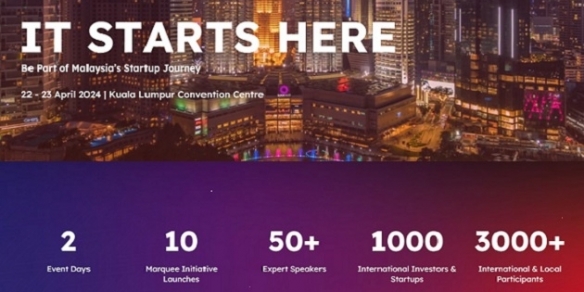RCI banks on South-East Asia to fuel expansion: Page 2 of 2
By Edwin Yapp August 20, 2013
From web hosting to the cloud
RCI today provides a range of proprietary products, including core web and mobile site builders and e-commerce products, and also engages in software development projects for enterprises. It also offers infrastructure-, platform- and software-as-a-service (IaaS/ PaaS/ SaaS) to its customers.
Because of its roots in the web-hosting business, RCI is today still seen as primarily a web hosting company, Chee acknowledges. Reinforcing this perception is the fact that RCI, through its subsidiary Emerge Systems, holds the domain 'www.webhosting.com.my.'
 However, he says much of RCI’s business has moved away from the commodity-driven, hardware-based web-hosting business to one that leverages on the intellectual property of the software it has created.
However, he says much of RCI’s business has moved away from the commodity-driven, hardware-based web-hosting business to one that leverages on the intellectual property of the software it has created.
“Sixty-eight percent of our revenue actually comes from our SaaS business and only 25% of revenue comes from our IaaS business,” he says, adding that he expects the SaaS portion to increase in the coming years.
On how he plans to address this challenge to become a more software-focused company, Chee says this would include renaming the holding company to 'Rapid Cloud International Plc' as part of the listing exercise.
Noting that the acronym for Rapid Cloud is the same for his name, he adds, “Rapid Cloud ... connotes the idea of moving quickly into cloud computing and away from being a web-hosting company.
“On the operational front, we have also moved the hosting division of the company to a subsidiary so as to avoid the overlap of software and hardware business functions.
“The rebranding [exercise] will also be regional in nature and has been ongoing since 2010. We will be doing more roadshows and taking up advertisements to show that we’re more focused on enterprise cloud software solutions, as well as up-selling these services to our existing clients through our network of sales consultants and channel partners,” he adds.
What the IPO funds
In RCI’s company filings with AIM, Chee says the money raised from the IPO will be used to fund its growth, and that the net proceeds of the placing will be used for geographical extension and expansion in Indonesia, where the group does not yet have a local presence, as well as in Thailand and the Philippines.
According to company documents, the AIM listing has raised approximately £1million (before expenses), through the placing of 1,851,948 new ordinary shares at £0.54 per share.
The placing was arranged by Allenby Capital and First Columbus Limited and the number of ordinary shares in issue immediately after admission was 17,368,971, giving RCI a market capitalisation of £9.4 million on the opening day of trading.
“We’ve reached a stage where in order to take the company to a new level and become a leader in cloud computing in this region, we needed to grow by mergers and acquisitions (M&As) and not just organically from within,” says Chee.
On what type of companies RCI would consider in its M&A plans, he says that it would look at companies that have synergistic value and that basically deal in the software development and cloud space in the SEA region.
“These companies should own strong positions in their respective verticals,” he adds. “We are not looking at quantity but quality clients – those who have loyalty from their respective customer bases and with good cash flow.”
Asked about competition and how RCI would differentiate itself from multinationals in the SaaS space, Chee acknowledges that while large US-based companies could be seen as competition, RCI may not necessarily compete with them.
“We believe we have certain strengths such as the ability to customise our solutions to local needs,” he says. “Yes, big companies develop complex systems but not all of them fulfil specific local requirements and we think we can do that.
"Cost is another factor as most of our clients are SMBs, and we are able to be more flexible on pricing and payment terms as we own our own intellectual property and do not need to pay licensing fees to use third party software.
“Besides this, we do still partner with certain multinationals and their products are able to sit on our platforms -- we are also open to working with best-in-breed players rather than having to re-invent the wheel.”
Quizzed as to how it would continue to grow its top-line revenue given that 90% of RCI’s business is in the SMB sector, Chee says, “We’re not worried about this as South East Asia has a huge number of SMBs – something to the tune of 90% of businesses -- and we believe we can tackle this market.
“Our company prefers to up-sell higher value services to these large number of SMBs to compensate for having fewer large customers. This way, we’re able to spread the risk despite having lower average revenue per user (ARPU) from each customer. This is our strategy going forward for us in South-East Asia," he adds.
Related Stories:
Malaysian cloud player makes debut on London’s AIM
CSF founder Adrian Yong steps down under a cloud
Asia in next phase of cloud readiness: Tata Communications
Asian SMB cloud adoption leapfrogs advanced market in US
For more technology news and the latest updates, follow us on @DNewsAsia or Like us on Facebook.


